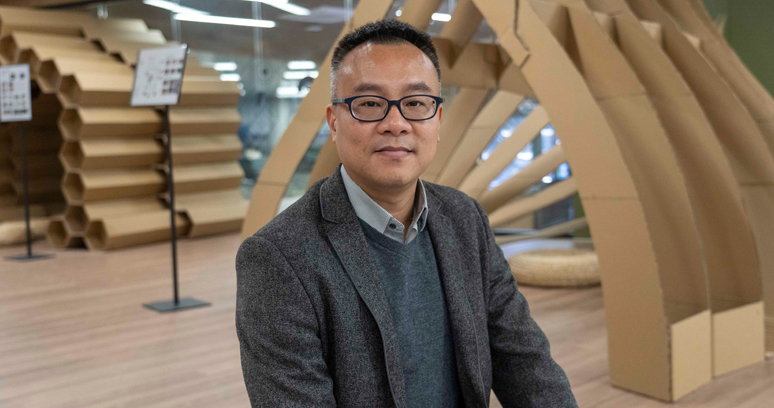
Hing Kai Chan
Transforming knowledge into operational excellence
Professor of Operations Management
Can you explain your research?
As an expert in operations management, my work helps companies and manufacturers improve the efficiency of their operational processes and better control the quality of their products and services.
Technology upgrades and policy changes, among others, pose challenges to companies, affecting the efficiency of their operational processes. My research focuses on identifying the bottleneck problems that are holding back the companies from reaching their optimal performance, offering innovative solutions for business growth in the face of the challenges.
What challenges is your research hoping to tackle?
The efficiency of a company’s business process is affected by internal and external factors from time to time. For example, the outbreak of COVID-19 pandemic has challenged the way many companies operate in an unprecedented manner, urging them to adapt quickly in order to stay operating. It is particularly so for the supply chain companies. In early 2020, I wrote a media commentary with other researchers on the risks and opportunities for supply chain companies during the pandemic, providing a series of recommendations on operational strategies.
There are other factors that affect business operations in the long run, instead of having an immediate impact. For example, when a disruptive technology emerges, a company should recognise its potential benefits, and make the full use of the technology. Otherwise, the company may fall behind its competitors and even lose its market share. Facing the pressing issue of climate change, companies are also expected to take socially responsible actions and accelerate their transformation towards sustainable development.
By working closely with industry, my research aims to bring the leading academic findings to practice, and offer pragmatic solutions to help companies deliver the optimal services and products.
What specific projects are you conducting?
I’m currently working on a project to design and produce a multimodal transport solution for a national logistics company to connect the countries and regions along the Belt and Road. Our solution package will be essentially an algorithm, which is able to generate the optimal route and combination of transport modes, by simply inputting variables concerning your available resources and the expected outcome. This algorithm lays the foundation of a smart logistics planning system.
Last year, I completed a research project on intellectual property protection in the 3D Printing industry, in collaboration with other researchers.
3D Printing technology presents great opportunities for manufacturers with its ability to customise products and minimise inventory. But in reality, only a few manufacturers actually use 3D Printing in its production. Why? Through field visits and interviews with companies, we found that for one reason, traditional manufacturers don’t know how to incorporate the new technology effectively in their production lines. For the other reason, the fact that there is a lack of promising anti-counterfeiting methods of 3D printing models also discourages manufacturers to apply the technology.
Our team invented a digital watermarking method for 3D printing models, which was awarded a national invention patent. This method allows the use of watermarks to trace item-level information to protect intellectual property rights, including information such as the platform used and the individual in charge. We have also published academic papers and a book - Intellectual Property Rights and Emerging Technology: 3D Printing in China.
Policy changes for sustainable development also place challenges to many companies. How can companies fulfil their sustainability duties and at the same time keeping their business growing? This is another research interest area of mine.
To help electronics companies to manufacture in compliance with the sustainability requirement, I had led a project which involved an evaluation on the environmental performance during every stage of products’ lifecycle, and subsequently a proposal for product redesign based on the assessment results. By redesigning the product and the manufacturing process, companies can achieve both a reduction in cost and a reduction in ecological footprint.
Where would you like to take your research next?
It has always been my passion to transform academic knowledge into real-world practices, in order to bridge the academia and the industry. By collaborating with talents from across disciplines, I will continue helping companies tackle operational challenges and create values sustainably for customers.
Going forward, my research will focus more on intelligent manufacturing. I will help companies transform their production process and unlock the full potential of the fourth industrial revolution technologies.